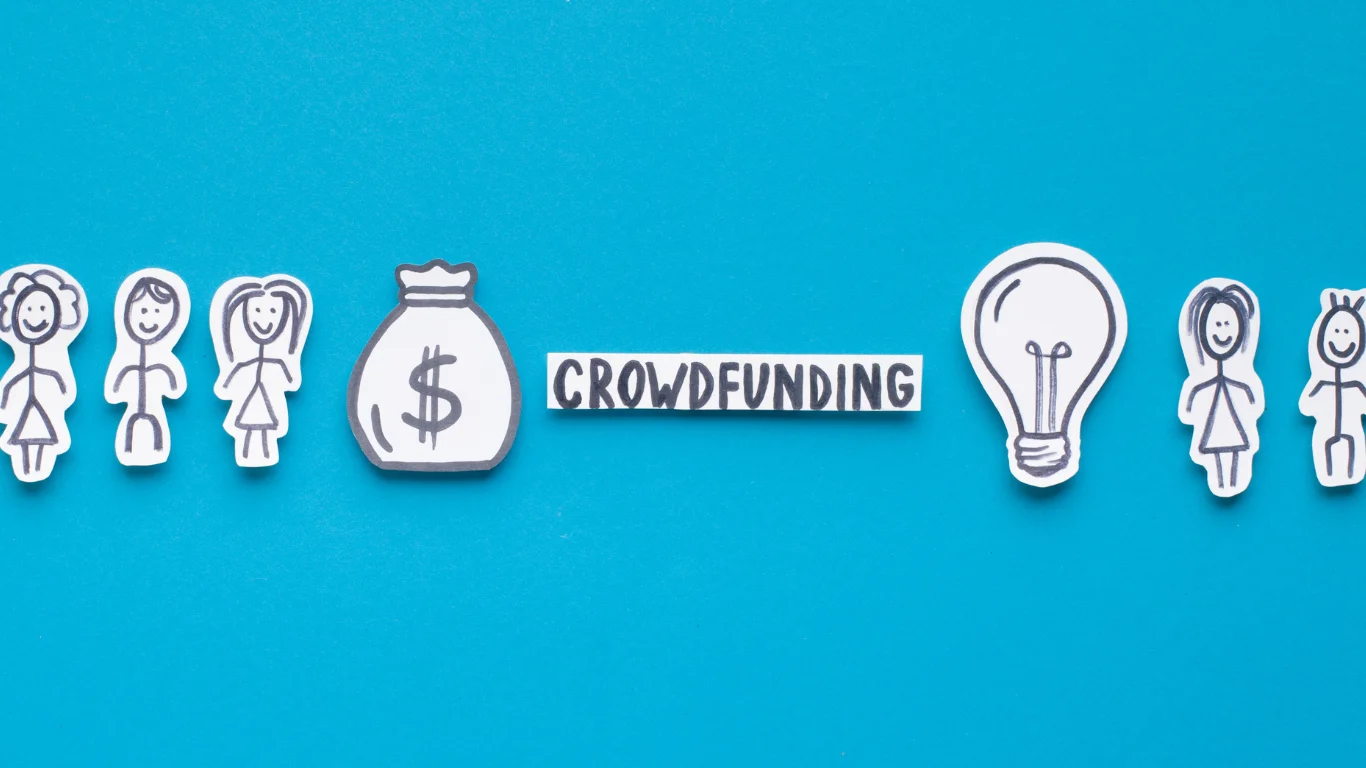In the realm of business financing, crowdfunding has emerged as a legitimate, accessible, and innovative strategy for entrepreneurs worldwide. But what is crowdfunding? How does it work? And how does it create opportunities for businesses? Let’s explore the world of crowdfunding and its potential for startups, entrepreneurs, and anyone seeking modern financing methods. We will dive deeper and answer many questions.
What is Crowdfunding?
Crowdfunding is a useful financial strategy that brings together many people to fund a new project, business idea, or social cause. It uses social media and crowdfunding platforms to make it easy for everyone to contribute. This approach makes it possible for anyone to raise funds and encourages entrepreneurship.
By using crowdfunding, you can reach a large audience and raise money for your project. It’s a great way to get support and start your business or raise funds for a social cause.
How Does Crowdfunding Work?
The mechanics of crowdfunding are quite straightforward. At its core, it involves three key players:
- The project initiator or entrepreneur who proposes the idea or project.
- The individuals or ‘crowd’ who support and fund the idea.
- The online platform that brings these two groups together.

The project initiator creates a campaign on a crowdfunding platform detailing their business idea, financial needs, and what backers can expect in return for their contribution. Interested individuals can then browse these campaigns, choose the ones they find compelling, and contribute funds to support them.
Crowdfunding: Creating Opportunities
One of the key aspects of crowdfunding is its potential to create opportunities. By democratizing access to capital, crowdfunding breaks down traditional barriers to finance, making it possible for virtually anyone with a compelling idea to secure funding. This has several important implications:
- Empowering Entrepreneurs: Crowdfunding lets entrepreneurs connect with potential investors worldwide. It’s especially helpful for new entrepreneurs who need more professional contacts, funding, or collateral to qualify for traditional financing.

- Validating Ideas: Crowdfunding can serve as a powerful tool for validating business ideas. The speed and enthusiasm of contributions often serve as an indication of the potential market demand for a product or service, providing valuable market insights.
- Building a Customer Base: Successful crowdfunding campaigns can help businesses build an organic customer base. Backers often become loyal customers and brand enthusiasts, having been part of the entrepreneurial journey from the beginning.
- Free Marketing: If a business idea is remarkable and the campaign is compelling, crowdfunding can serve as a form of free marketing that generates publicity and attracts investors.
Types of Crowdfunding
There are several types of crowdfunding, each with its unique features and benefits. Here are the four main types:
- Equity-Based Crowdfunding: This involves backers receiving shares in the company in exchange for their contributions. It’s often used by startups looking to launch or expand their business.
- Rewards-Based Crowdfunding: Backers receive gifts or rewards from the business owner in return for their contributions. This is common for product launches or creative projects.
- Debt-Based Crowdfunding: In this model, backers lend money to the business, which agrees to repay the loan with interest. This can be a quicker and less complex process than borrowing from a bank.
- Donation-Based Crowdfunding: When people donate to social causes or help individuals in need, they don’t always receive any physical rewards in return. This type of donation is common and is usually done out of kindness and empathy.
Best Crowdfunding Sites
There are numerous crowdfunding platforms available, each with its unique focus and specialty. Here are a few of the most popular ones:
- Kickstarter: Known for backing creative projects, Kickstarter is ideal for entrepreneurs in the arts, design, and technology sectors.
- Indiegogo: Indiegogo is versatile and flexible, often used for tech innovations, creative works, and community projects.
- GoFundMe: GoFundMe is the go-to platform for personal causes and charitable campaigns, from medical expenses to educational projects.
- Patreon: For artists, writers, and creators seeking recurring funding, Patreon offers a platform where fans can offer regular financial support.
How to Run a Successful Crowdfunding Campaign
To run a successful crowdfunding campaign, you must plan meticulously, tell a compelling story, and engage your audience continuously. Here are the key steps that you should follow to ensure your campaign’s success:
- Define Your Goal: Be clear about how much money you need and what it will be used for.
- Create a Compelling Pitch: Tell an engaging story about your project. Use videos and images to make your pitch more compelling.
- Offer Incentives: Provide rewards that are exciting and valuable to your backers.
- Promote Your Campaign: Use social media, email marketing, and PR to get the word out about your campaign.
- Keep Your Backers Updated: Regularly update your backers about your campaign’s progress. This will help keep them engaged and encourage them to spread the word.

In conclusion, crowdfunding represents a transformative approach to business financing, opening up a world of possibilities for entrepreneurs and innovators. By understanding what crowdfunding is and how it works, you can leverage this dynamic tool to turn your business dreams into reality.
FAQs
Can anyone start a crowdfunding campaign?
Yes, anyone can start a crowdfunding campaign, provided they comply with the rules and regulations of the crowdfunding platform and the laws of their country.
How much money can you raise through crowdfunding?
The amount of funds you can gather through crowdfunding is directly related to how attractive your project is to potential donors, your promotional efforts, and the platform you choose. Some campaigns raise a few thousand dollars, while others raise millions.
Can crowdfunding replace traditional business financing methods?
While crowdfunding offers an innovative way to raise funds, it may only be suitable for some types of businesses or financial needs. It’s best used as a complementary tool alongside traditional financing methods like bank loans or venture capital.
Are there risks involved in crowdfunding?
Yes, there are risks involved, including the risk of not meeting your funding goal, the risk of legal or regulatory issues, and the risk of damaging your reputation if you fail to deliver on your promises to backers.






